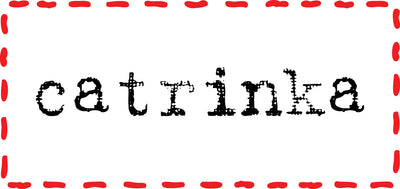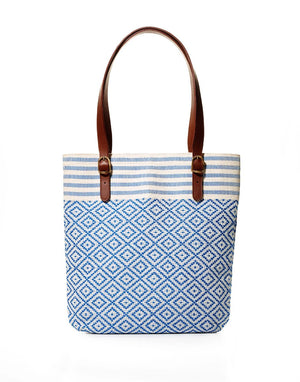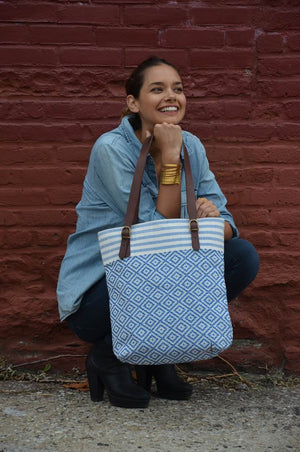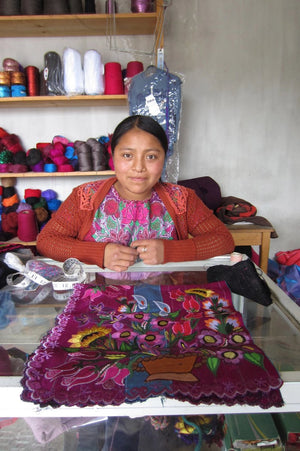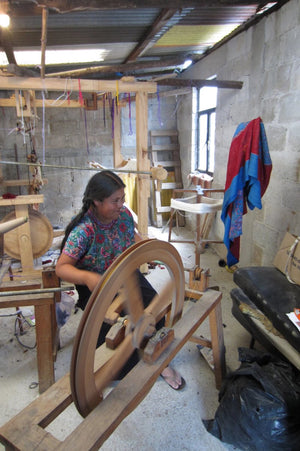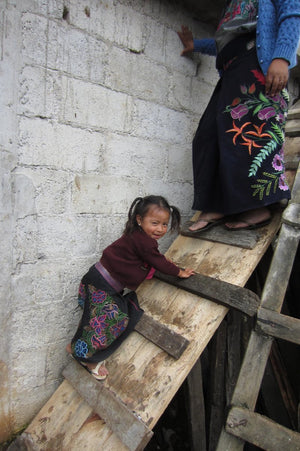Details
Size: 17" h x 15" w x 2.5" g
Material: 100% cotton, 100% cow leather handles
Handmade in Mexico
Are you looking for a lightweight, durable, go-everywhere tote or laptop bag? The Ceci Tote features a modern take on the traditional diamonds weaving patterns in Chiapas and leather handles with a buckle accent. Lined in white cotton muslin with an interior zip pocket.
Comes with a free friendship bracelet made by the girls your purchase supports.
Impact
The fabric for this bag was woven on a pedal loom by Josefa, with help from her daughter Ceci, in Nachig, Chiapas. The bag was assembled in an ethical factory outside of Mexico City. Each bag provided 2 days of fair work to women in Mexico. The sale of each bag provides a week of life skills mentoring for adolescent indigenous girls through the Catrinka Girls Project.
The women behind the bag:
As of 2014, Josefa is married and has 5 children: 3 girls, and 2 boys. Her mother taught her how to embroider by hand when she was 6, and to weave on the back-strap loom when she was 10 years old. In 2004 she received training to work on the pedal loom, which allows her to make finer weavings more quickly. These days Josefa and other weavers in her group weave rebozos, cushions and finer fabrics on the pedal loom, but they still use the back-strap loom for enredos and mochevales (a type of cape). Josefa weaves 4-5 hours per day during the afternoon and evening; in the morning she goes to the local market to sell textiles and threads. Josefa's family also runs a notions store that is based at their home.
Currently two of her children are in school: Claudia is in kindergarten (that is her winking in one of the photos below) and an older brother is in his first year of primary school. The oldest are two girls, Ceci (16) and Rosi (14), who both graduated from primary school and now work with their mother. They started warping when they were 6 years old and weaving when they were 12. The decided not to go to secondary school because they need to earn money. The artisan support group Josefa contracts with provides computer studies and other training programs for the children of weavers.
Josefa earned the work for Catrinka by producing a woven sample to match one that the artisan support group gave her. It took her two weeks to figure it out but now she is producing 15 panels a week. She sent the sample back - she says she has all the information she needs in her brain.
